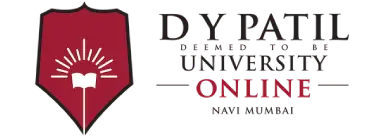At the moment a student completes its 12th standard, the biggest question arises: What next? Choosing the right candidates is one of the most important decisions in the student’s life, as it directly affects career opportunities, higher education alternatives and general professional development. In the large selection of available candidates, three stand out as the most popular in India: BA (Bachelor of Arts), B.com (Bachelor of Commerce) and B.Sc (B.SC).
But with so many alternatives, confusion is natural. Should you go for BA because of the flexibility? Is B.com better for stability in the corporate sector? Or if you are emotional about science, should you choose B.Sc? To make things easier, let each course break, find out career opportunities and understand who makes your strength and ambition best.
Understanding BA (Bachelor of Arts)
The Bachelor of Arts (BA) is a three -year bachelor’s degree focusing on the humanities, liberal arts and social sciences. It is one of the oldest and most versatile degrees in the world. Students can choose between different types of competence such as English, history, sociology, political science, psychology, philosophy or even Hindi, French or Spanish.
A BA course emphasizes theoretical learning, important thinking and communication. Unlike B.com or B.SC, it is less technical, but provides a broad understanding of society, culture and human behavior.
Who Should Choose BA?
- Students who are interested in subjects such as literature, history, sociology, psychology or philosophy.
- Those who want to prepare for civil services or other government exams.
- Creative and analytical thinkers who prefer to read, write and discover social issues.
Career Opportunities after BA
BA -New graduates like a wide range of career opportunities. They can work like this:
- Journalist, author or editor.
- Teachers, professors, or counselors.
- Social workers, psychologists, or human resource professionals.
- Public relations officers or advertising professionals.
- Civil servants or government officers.
Higher Studies after BA
A BA opens for higher education such as MA, MSW (Master of Social Work), MBA or diploma as journalism, public communication or foreign language. Many students also follow B.ED after BA becomes teachers.
Understanding B.Com (Bachelor of Commerce)
The Bachelor of Commerce (B.com) is a major program of one and three years, but it focuses more on trade, finance and business -related topics. It is one of the most sought -after courses among students who have studied trade in 12th Standard, but even students of science or art can choose it if they are interested in business.
B.com The course includes topics such as accounting, finance, business law, finance, taxation and management. Compared to BA, B.com is more career -specific, where clear attention is given to students preparing for business and financial world.
Who Should Choose B.Com?
- Those who are doing well with students numbers, logical logic and business concepts.
- Those who want to create a career in banking, accounting, financial or corporate sectors.
- Students are planned to pursue professional courses such as CS, CMA or CFA.
Career Opportunities after B.Com
B.com graduates are in demand in both private and authorities’ sectors. Career Options include:
- Accountant or auditor.
- Financial analyst or investment banker.
- Tax consultant.
- Business analyst or entrepreneur.
- Bank officer or insurance specialist.
Higher Studies after B.Com
The most common alternatives for higher education after B.com include M.com, MBA, CA, CS, CFA and CMA. These qualifications increase job prospects and pay.
Understanding B.Sc (Bachelor of Science)
The Bachelor of Science (B.SC) is a three -year master’s program focusing on science and research. It is best suited for students who have studied science in 12. And are emotional about subjects such as physics, chemistry, mathematics, biology or computer science.
B.SC course combines theoretical learning with practical laboratory function. Students can choose between different competences such as biotechnology, microbiology, environmental science, zoology, botany or IT-related sectors such as computer science and artificial intelligence.
Who Should Choose B.Sc?
- Students who are deeply interested in scientific research and experiments.
- Those aiming for careers in healthcare, IT, or research organizations.
- Students planning to focus on higher studies such as MSC, MCA or PhD.
Career Opportunities after B.Sc
The scope of B.SC depends on expertise, but includes in the general career path:
- Research scientist or laboratory technician.
- Software developer, data analyst or IT professionals.
- Biotechnologist or microbiologist.
- Environmental consultant or healthcare specialist.
- Teaching or academic research.
Higher Studies after B.Sc
B.SC -graduates can pursue M.Sc, MCA, MBA or PhD programs. Many competitive exams such as IITs also appear to jam, street or authorities’ scientific roles.
Comparing BA, B.Com, and B.Sc
Now that we have explored each course individually, let’s highlight the differences.
- BA is best for students who bow to art, literature and social science. It provides flexibility and is great for career in education, writing, journalism, social work and civilian services.
- B.com is more structured and career -centered, suitable for those who want to enter the business world, finance, bank or business.
- B.Sc is for students who love science, research, and technology. It provides a solid base for research -oriented or technical career.
How to Decide Which Course is Best for You
Students have made the biggest mistake to choose a course based on trends or colleagues. The right way is to evaluate your interests, strength and long -term goals.
- Choose BA if you like creativity, humanities and analytical discussions. If you are preparing for government jobs or civil services, BA will give you an edge.
- Choose B.Com if you are good at numbers, problem-solving, and business-related subjects. If your dream lies in career funding, banking or leadership, it’s an ideal way.
- Choose B.SC if science stimulates you and you want to work in research, health care, IT or academic fields.
Before you finish, ask yourself: What subjects do I like most? What career do I want to see myself about five to ten years from now? The answer will help you make the right decision.
Read More:- Top Online MBA Specializations in 2025 (Finance, HR, Marketing, IT, Data Science)
Final Thoughts
BA vs B.com against B.SC debate – What candidate courses are the best? There is no universal answer. Each course has its own qualification and career opportunities. The key is to choose a program that matches your passion and future ambitions.
- BA degree opens the doors of art, humanities, civil service and creative career.
- B.com paves the way for business, trade, economy and business jobs.
- B.SC degree creates a strong foundation in science, research and technology-driven careers.
At the end of the day, what means most not only the degree you have chosen, but how affectionate and emotional you are about pushing it forward. With hard work and the right mentality, all three courses can succeed and complete a career.
Frequently Asked Questions
1. Which is better: BA, B.Com, or B.Sc?
None is universally better—it depends on your interest. BA suits humanities and civil services, B.Com suits finance and corporate roles, while B.Sc is best for science and research careers. Choose based on passion and future goals.
2. Can I do MBA after BA, B.Com, or B.Sc?
Yes, MBA is possible after all three. B.Com graduates often have a business edge, but BA and B.Sc students can succeed equally well with strong analytical, communication, and management skills.
3. Which course has more job opportunities: B.Com or B.Sc?
B.Com provides roles in accounting, banking, and business, while B.Sc offers careers in research, IT, and healthcare. Job opportunities depend on your chosen field and specialization.
4. Can I do government jobs after BA, B.Com, or B.Sc?
Yes, all three degrees qualify for government exams. BA helps in UPSC, B.Com suits banking and finance, and B.Sc supports research and technical roles.
5. Can I switch streams after graduation?
Yes, switching is possible. BA graduates can pursue law or MBA, B.Com students can enter analytics or marketing, and B.Sc graduates can move into management with higher studies.











